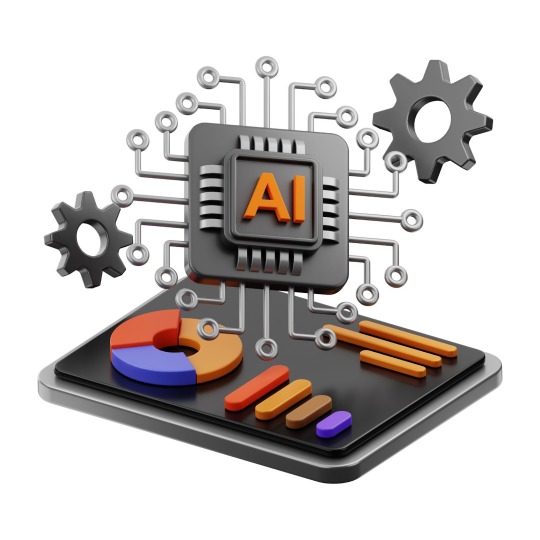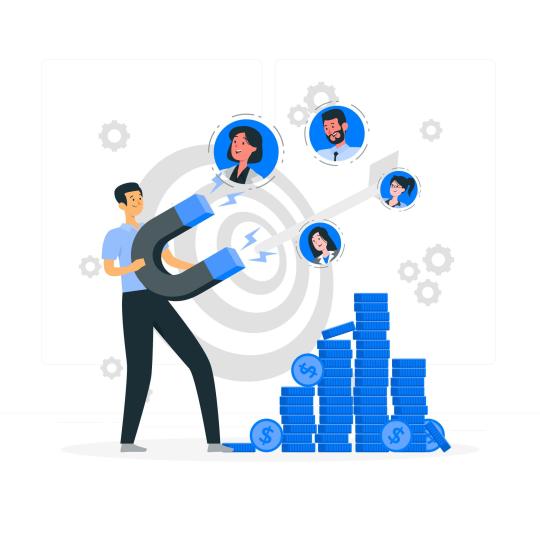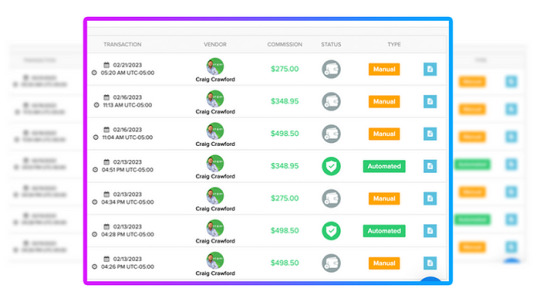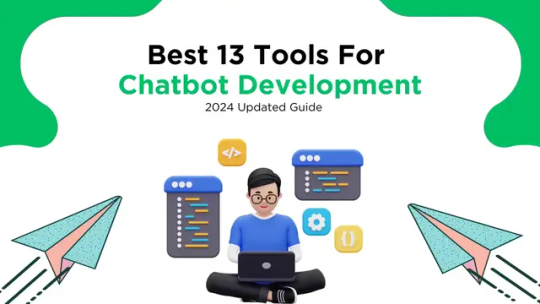#IBM Watson Services Market
Text
The major companies in the agriculture drones market are:
DJI
PrecisionHawk
Trimble Inc.
Parrot Drones
AeroVironment, Inc.
Yamaha Motor Co., Ltd.
AgEagle Aerial Systems, Inc.
DroneDeploy
3DR
Sentera Inc.
ATMOS UAV
Delair
Nileworks Inc.
To increase their market presence, these businesses are concentrating on a number of different techniques, such as:
Innovation: Major corporations are making significant investments in R&D to create new drone technology and uses. For instance, DJI just unveiled the Agras T40 drone, which is intended solely for agricultural use.
Partnerships: Companies collaborate with other companies and organizations to broaden their consumer base and provide them with new services. For instance, PrecisionHawk and IBM Watson have collaborated to create a cloud-based platform that aids farmers in the analysis of drone data.
Education and training: To teach farmers and other agricultural experts how to utilize drones safely and efficiently, businesses are providing educational programs and training sessions. For instance, Trimble provides a range of training programs on its software and drones for agriculture.
Many businesses are also concentrating on broadening their worldwide reach and entering new markets in addition to these tactics. For instance, DJI has a significant market share in China but is also growing its business in North America and Europe.
As more farmers adopt this technology, the market for agriculture drones is anticipated to expand dramatically over the next years. Major corporations are in a good position to profit from this expansion if they keep innovating, collaborate with other firms, and inform farmers about the advantages of drones.
2 notes
·
View notes
Text
Forget ChatGPT | Other Mind Blowing AI Tools

Image: Freepik
In the ever-evolving world of technology, artificial intelligence (AI) has become an integral part of our lives. From virtual assistants to chatbots, AI is transforming the way we interact with digital solutions. While ChatGPT is a well-known language model that has garnered a lot of attention, there are many other mind-blowing AI tools that digital agencies can explore to enhance their digital solutions.
Digital agencies are in the business of providing comprehensive digital solutions to their clients. This includes everything from website development to social media management. By leveraging AI, digital agencies can improve the efficiency and effectiveness of their services, ultimately providing better results for their clients.
Let's explore some other AI tools that digital agencies can use beyond ChatGPT.
IBM Watson
IBM Watson is an AI-powered system that can analyze unstructured data, such as text, images, and videos, to provide insights and recommendations. This tool can be used to automate many tasks, such as customer service and content creation, and can help digital agencies improve their efficiency.
For example, digital agencies can use IBM Watson to analyze social media posts and determine which ones are generating the most engagement. This can help them identify trends and create content that is more likely to resonate with their audience.
Google Cloud Vision

Image: Unsplash
Google Cloud Vision is an AI-powered image analysis tool that can detect objects, faces, and text in images and videos. This tool can be used to automate many tasks, such as tagging and categorizing images, and can help digital agencies improve their image and video analysis capabilities.
For example, digital agencies can use Google Cloud Vision to analyze images and videos on social media to determine which ones are generating the most engagement. This can help them identify trends and create content that is more likely to resonate with their audience.
Amazon Polly
Amazon Polly is an AI-powered text-to-speech service that can convert text into lifelike speech. This tool can be used to automate many tasks, such as creating voice overs for videos, and can help digital agencies improve their content creation capabilities.
For example, digital agencies can use Amazon Polly to create voice overs for explainer videos, which can help them better communicate complex ideas to their audience.
TensorFlow
TensorFlow, an open-source AI library created by Google, is an excellent resource for building and training machine learning models. With its automation capabilities, this tool can streamline several tasks, including data analysis and predictive modeling, making it an invaluable asset for web development agencies looking to enhance their data analysis capabilities.

Image: Freepik
For example, digital agencies can use TensorFlow to build predictive models that can help them identify which social media posts are likely to generate the most engagement. This can help them create more effective social media campaigns.
Hootsuite Insights
Hootsuite Insights is an AI-powered social media analytics tool that can help digital agencies monitor and analyze social media conversations. This tool can be used to automate many tasks, such as sentiment analysis and trend identification, and can help digital agencies improve their social media management capabilities.

Image: Hootsuite
For example, digital agencies can use Hootsuite Insights to monitor social media conversations about their clients' brands and products. This can help them identify areas where their clients can improve their marketing efforts and create more effective social media campaigns.
Conclusion
In conclusion, while ChatGPT is an impressive AI tool, digital agencies have many other options to explore. By leveraging AI tools like IBM Watson, Google Cloud Vision, Amazon Polly, TensorFlow, and Hootsuite Insights, digital agencies can improve their digital solutions and provide better results for their clients. As AI continues to evolve, we can expect to see even more innovative and exciting applications of this technology in the digital agency industry.
#marketing#digitalmarketing#blog#new post#chatgpt#content creation#content marketing#blogger#social media#news#google#lateststories
3 notes
·
View notes
Text
The Ultimate Guide to Finding the Best Real Estate Company in Dubai
Are you thinking of investing in the sizzling hot market that is Dubai real estate? Then congratulations on taking this important step towards financial success! Moving to a new country, however, can be daunting and intimidating - not least when it comes to finding the perfect real estate company. Well, you’ve come to the right place because, in this ultimate guide, we’re going to dive deep into everything you need to know about selecting the best company for your property needs in Dubai.
When seeking the best real estate companies in Dubai, there are several factors to consider:
Reputation
First and foremost, reputation is key. It is important to find the Best Real Estate Company in Dubai that has an established track record within the industry with a good standing among its clients. You should research the company's past projects and testimonials from current and former clients, as well as check their online reviews on websites such as Google, Yelp!, or Trustpilot. Additionally, make sure that you verify that the company has all necessary licenses and permits required by your local regulations when investing in property located in Dubai.
Capabilities
Second, you must expertly assess their market analysis capabilities. A good real estate firm should have expertise in the current economic trends for different areas of investment such as construction materials costs or financing options for developers; these will help inform your decision-making process when selecting an ideal property to invest in. Furthermore, look for companies who understand both local and international markets which will allow them to provide you with advice about what kind of properties may be more lucrative in foreign countries like Singapore or Malaysia than those available locally within Dubai itself.
Self-evident
Thirdly - and this may be self-evident - select firms with experienced advisors who listen carefully to your needs and focus on providing quality customer service at each stage of your investment journey. They should be able to offer assistance related not only to local legal matters but also taxation issues pertaining specifically to foreign nationals via tailor-made solutions that meet individual specifications through sound financial planning strategies rooted in data science technology trends set by global leaders like IBM Watson Analytics AI platforms & Amazon Web Services’s Data Lakes Architecture infrastructure responsible for optimizing business decisions across multiple industries today & tomorrow! Plus if they can showcase their portfolio of successful client acquisition images featuring prestigious developments then even better!
Final thoughts
We have examined the various moving parts when looking for the best real estate company in Dubai. From the laws and regulations governing real estate deals to the features that each digital platform offers, this ultimate guide has it all. With so much information available, it can be difficult to make a decision— but with Time Properties, you can rest assured knowing you are in good hands. As one of the leading real estate companies in Dubai, they offer everything you need to find your dream rental properties quickly and efficiently. Whether you’re looking for luxury apartments for rent or a villa, Time Properties is here to ensure absolute satisfaction. With their knowledgeable team and industry-leading services, Time Properties is undoubtedly the right choice for all of your real estate needs in Dubai!
#property finder dubai#commercial property for rent#dubai real estate#residential#office space for rent
2 notes
·
View notes
Text
2024: Predictive Analytics Transforming Lead Management

Lead generation is the initial step in identifying and marketing to qualified, interested prospects. However, it changes as tactics and technology evolve. Understanding lead generation trends may be useful in this circumstance.
Businesses generate and collect an increasing amount of data as technology advances. Companies use predictive analytics technologies to gain a competitive advantage and make data-driven decisions.
For More Information: https://sales-demand.com/2024-predictive-analytics-transforming-lead-management/
Effective lead generation also requires the integration of sales and marketing, as companies need to make sure that their marketing and sales initiatives are coordinated.
Important aspects that organizations need to take into account for their lead generation operations include analytics and measurement, as well as interactive content for engagement.
Predictive Analytics in Lead Management
Predictive analytics is similar to having a smart assistant for your firm. It combines data, trends, and algorithms to forecast what will happen in the future. In layman's words, it's the magic of predicting which leads are more likely to become satisfied customers.
1# Growing Significance
Imagine having the ability to predict which potential customers are most interested in your products or services. That is exactly what it accomplishes with B2B lead management. It has grown in importance since it improves the overall efficiency and effectiveness of the process.
2# Key Factors Driving Adoption
Businesses are embracing predictive analytics for several reasons. For starters, it saves time and resources by focusing on the leads with the highest conversion rates. Second, it increases sales by personalizing messages and offerings to each lead's specific needs. It's like having a personal guide through the maze of potential consumers, making the trip easier and more fruitful.
Benefits of Integrating Predictive Analytics
Integrating predictive analytics into your business is like adding a superhero cape to your marketing strategy. Here’s why:
1# Improved Lead Targeting and Segmentation
Consider predictive analytics to be your trusted partner, assisting you in precisely targeting your marketing campaigns. It goes through massive amounts of data to locate the ideal audience for your products or services. This means no more wasting time on leads who aren't a good fit; it's like having a GPS for your marketing target.
Visit Us: www.sales-demand.com
2# Enhanced Personalization
Predictive analytics takes personalization to a whole new level. It’s like having a conversation with each lead in their own language. By understanding their preferences and behaviors, it crafts messages that feel tailor-made. It’s the difference between receiving a generic ad and one that feels like it was made just for you – making your brand more like a friend than a stranger.
3# Boosting Campaign ROI
Imagine having a secret map that guides your campaigns to success. Predictive analytics provides that map by giving you insights backed by data. It’s not just a shot in the dark; it’s a calculated move. This precision ensures that every penny spent on your campaign contributes meaningfully to your business growth. It’s like having a financial advisor for your marketing budget, making sure it works harder and smarter.
Predictive Analytics Tools and Technologies
In the dynamic realm of business, predictive analytics tools have become indispensable for foresight and strategy. Here’s a simple breakdown:
Overview of Popular Tools: Predictive analytics has champions like IBM Watson, Google Analytics, and Salesforce Einstein. These tools harness the power of data to forecast trends and patterns.
Our Services: https://sales-demand.com/lead-generation-solutions/
Comparative Analysis: Each tool brings unique strengths. IBM Watson excels in machine learning, Google Analytics in web analytics, and Salesforce Einstein integrates seamlessly with CRM. Understanding these distinctions ensures you pick the tool aligned with your specific needs.
Choosing the Right Tools: Businesses should tailor their choice based on requirements. Consider factors like data volume, industry specificity, and budget. For instance, if customer relationship management is a priority, Salesforce Einstein might be the ideal fit.
Navigating Predictive Analytics: Overcoming Challenges
It brings promises but also hurdles. Let’s simplify:
Common Challenges: Implementing predictive analytics may face obstacles like data complexities and resistance to change. Recognizing these hurdles is the first step.
Strategies for Success: Overcoming challenges involves strategic planning. Engage stakeholders, provide training, and ensure alignment with business goals to pave the way for seamless integration.
Data Quality and Ethics: The heart of predictive analytics is quality data. Ensuring accuracy and ethical usage is paramount. A commitment to ethical practices builds trust and reliability in predictive insights.
Predictive Analytics Trends
Delving into the future of predictive analytics offers a glimpse into exciting possibilities:
Emerging Trends: It evolves. Stay attuned to new algorithms, machine learning advancements, and data visualization tools, ensuring your lead management stays ahead.
Innovations in B2B Marketing: Witness a transformation in B2B marketing as predictive analytics continues to innovate. From personalized customer experiences to refined targeting, the possibilities are vast.
Beyond 2024: Peer into the crystal ball for anticipated developments. Expect further integration with AI, heightened automation, and even more sophisticated predictive models.
Future Trends and Innovations
As we set sail into the future, anticipate these transformative trends:
Emerging Trends in Lead Management: Stay ahead by embracing new trends in predictive analytics. From augmented reality integrations to predictive lead scoring advancements, the landscape is ever-evolving.
Our Services: https://sales-demand.com/database-solutions/
Innovations Shaping B2B Marketing: Witness ground breaking innovations shaping the future of B2B marketing. Personalized AI-driven strategies, immersive customer experiences, and automated decision-making are set to redefine the industry.
Anticipated Developments Beyond 2024: Look beyond the horizon and envision developments post-2024. Expect increased synergy between predictive analytics and artificial intelligence, resulting in unparalleled insights and efficiency.
Conclusion
This transformative journey underscores the essential role of predictive analytics in the ever-evolving B2B lead management arena. Businesses eagerly welcome these developments, seeing them as the key to being competitive in the future. Accept the power of predictive analytics and set yourself up for long-term success.
Boost your business with Sales Demand’s help in managing leads. Get in touch to discover how we can bring you more potential customers. To learn more, contact us now.
0 notes
Text
SAP Ariba IBM

SAP Ariba and IBM: Transforming Procurement for the Digital Age
Procurement, a core business function, has recently undergone a significant transformation. The rise of cloud-based solutions, intelligent automation, and the need for more data-driven insights are shaping the future of buying and sourcing for businesses of all sizes. Two technology leaders, SAP Ariba and IBM, are at the forefront of this change, delivering innovative solutions that help companies streamline and optimize their procurement processes.
What is SAP Ariba?
SAP Ariba is a market-leading suite of cloud-based procurement solutions spanning the entire source-to-pay (S2P) cycle. It brings buyers and suppliers together on a vast collaborative network, the Ariba Network, facilitating efficient transactions and deeper insights into spend patterns. Key components of SAP Ariba include:
Strategic Sourcing: Tools for e-sourcing, supplier discovery, and contract management.
Procure-to-Pay (P2P): Automating requisitions, purchase orders, invoicing, and payments.
Supplier Management: Centralized supplier information for performance tracking and risk mitigation.
Spend Analysis: Advanced analytics and visualizations to uncover spending patterns and identify savings opportunities.
IBM’s Role in the SAP Ariba Ecosystem
IBM has a robust partnership with SAP, acting as a key consulting and implementation partner for SAP Ariba solutions. IBM brings several strengths to the table:
Deep Industry Expertise: IBM consultants understand how procurement operates in various sectors, offering tailored implementation support.
Cognitive Capabilities: IBM Watson infuses SAP Ariba with AI-powered insights for enhanced decision-making and intelligent supplier matching.
Integration Services: IBM helps organizations seamlessly connect SAP Ariba with their existing ERP and supply chain systems.
Additional Solutions: IBM offers complementary technologies like blockchain and robotic process automation (RPA) to extend the capabilities of SAP Ariba further.
Key Benefits of the SAP Ariba and IBM Collaboration
The synergy between SAP Ariba and IBM offers several compelling advantages for organizations seeking to transform their procurement operations:
Cost Reduction: Automated processes, streamlined workflows, and more excellent spend visibility help cut costs associated with procurement.
Improved Compliance: Rules-based processes, contract management, and supplier risk monitoring enhance compliance with company policies and regulations.
Enhanced Supplier Collaboration: Facilitates effective supplier communication, improves contract negotiations, and fosters innovation.
Data-Driven Insights: Powerful analytics tools translate complex spend data into actionable insights, driving better strategic decisions.
Agility and Scalability: Cloud-based solutions and flexible deployment options enable companies to respond quickly to changing needs and scale up or down as required.
The Road Ahead
The future of procurement looks bright thanks to the innovations being driven by SAP Ariba and IBM. Integrating technologies like AI, blockchain, and IoT is bound to make procurement even more intelligent, efficient, and transparent. Suppose your organization wishes to remain competitive and gain a strategic edge in the years ahead. In that case, it’s imperative to consider cloud-based procurement solutions and the potential benefits of the SAP Ariba and IBM partnership.
youtube
You can find more information about SAP ARIBA in this SAP ARIBA Link
Conclusion:
Unogeeks is the No.1 IT Training Institute for SAP Training. Anyone Disagree? Please drop in a comment
You can check out our other latest blogs on SAP ARIBA here – SAP ARIBA Blogs
You can check out our Best In Class SAP ARIBA Details here – SAP ARIBA Training
Follow & Connect with us:
———————————-
For Training inquiries:
Call/Whatsapp: +91 73960 33555
Mail us at: [email protected]
Our Website ➜ https://unogeeks.com
Follow us:
Instagram: https://www.instagram.com/unogeeks
Facebook: https://www.facebook.com/UnogeeksSoftwareTrainingInstitute
Twitter: https://twitter.com/unogeek
1 note
·
View note
Text
AI Tools: Utilizing the Power of Artificial Intelligence

As technology continues to advance at an exponential rate, businesses are constantly seeking ways to improve their efficiency and productivity. One of the most groundbreaking innovations in recent years is the development of Artificial Intelligence tools. These tools have the potential to revolutionize the way businesses operate, streamlining processes and reducing manual labor. In this article, I will explore the benefits of using AI tools and how they can boost efficiency in various industries.
Benefits of using AI Tools
The use of AI tools in business comes with a myriad of benefits. Firstly, these tools can automate repetitive tasks, freeing up valuable time for employees to focus on more complex and strategic activities. This not only increases productivity but also improves job satisfaction as employees can engage in more meaningful work.
Secondly, AI tools have the ability to process and analyze vast amounts of data in a fraction of the time it would take a human. This enables businesses to make data-driven decisions quickly and accurately, leading to better outcomes and increased efficiency.
Furthermore, AI tools can enhance customer service and support by providing personalized and automated responses. Chatbots, for example, can handle customer inquiries and resolve issues in real-time, ensuring a seamless customer experience.
Different types of AI Tools
There are various types of AI tools available in the market, each designed to cater to specific business needs. Natural Language Processing (NLP) tools, for instance, can analyze and understand human language, enabling businesses to extract valuable insights from unstructured data such as customer reviews and social media posts.
Machine Learning (ML) tools, on the other hand, can learn from data and improve their performance over time. These tools are particularly useful in tasks such as predictive analytics, fraud detection, and recommendation systems.
Computer Vision tools are also gaining prominence, as they can interpret and analyze visual data, allowing businesses to automate tasks such as image recognition, object detection, and quality control.
How AI Tools can boost efficiency in various industries
AI tools have the potential to boost efficiency in a wide range of industries. In the healthcare sector, for example, AI-powered diagnostic tools can analyze medical images and detect abnormalities with high accuracy, enabling doctors to make better and faster diagnoses.
In the manufacturing industry, AI tools can optimize production processes by predicting maintenance needs, reducing downtime, and improving overall equipment effectiveness.
AI tools are also transforming the financial sector. Fraud detection algorithms can analyze large volumes of financial transactions, identifying suspicious patterns and reducing fraudulent activities.
Popular AI Tools in the market
The market for AI tools is rapidly growing, with new tools being developed and introduced regularly. Some of the most popular AI tools in the market today include:
IBM Watson: IBM Watson is a powerful AI platform that offers a wide range of tools and services, including natural language processing, machine learning, and computer vision capabilities.
Google Cloud AI: Google Cloud AI provides a suite of AI tools and services, including speech recognition, translation, and image analysis.
Microsoft Azure Cognitive Services: Microsoft Azure Cognitive Services offers a collection of AI tools that can be easily integrated into existing applications, enabling businesses to add AI capabilities without the need for extensive development.
Amazon AI: Amazon AI provides a range of AI services, such as natural language understanding, machine learning, and computer vision.
Implementing AI Tools in your business
Implementing AI tools in your business can be a transformative process, but it requires careful planning and consideration. Here are some steps to consider when implementing AI tools:
Identify business needs: Determine which areas of your business could benefit most from AI tools. This could be automating repetitive tasks, improving decision-making processes, or enhancing customer service.
Evaluate available tools: Research and evaluate the AI tools available in the market. Consider factors such as functionality, ease of integration, and cost.
Develop a roadmap: Create a roadmap for implementing AI tools in your business. Identify key milestones and set realistic timelines for implementation.
Train employees: Provide training and support to employees to ensure they are equipped with the necessary skills to use AI tools effectively.
Monitor and evaluate: Continuously monitor and evaluate the performance of AI tools to ensure they are delivering the expected results. Make adjustments and improvements as necessary.
AI Tools for productivity and organization
AI tools can significantly improve productivity and organization within a business. For instance, project management tools powered by AI can automate task assignments, prioritize workloads, and provide real-time progress updates. This not only helps teams stay organized but also ensures that projects are completed on time and within budget.
Additionally, AI tools can enhance document management by automatically categorizing and tagging documents based on their content. This makes it easier for employees to find and retrieve relevant information quickly, saving time and reducing the risk of errors.
AI-powered virtual assistants are also gaining popularity in the workplace. These assistants can schedule meetings, answer queries, and perform administrative tasks, allowing employees to focus on more strategic activities.
AI Tools for customer service and support
Providing excellent customer service is crucial for any business, and AI tools can play a key role in enhancing the customer experience. Chatbots, for example, can handle customer inquiries and provide instant responses, ensuring that customers receive timely support even outside of business hours.
AI tools can also analyze customer data to identify patterns and trends, enabling businesses to personalize their marketing and customer service efforts. This leads to higher customer satisfaction and loyalty.
Additionally, sentiment analysis tools can analyze customer feedback and social media posts to gauge customer sentiment and identify areas for improvement. This valuable feedback can help businesses make data-driven decisions to better serve their customers.
AI Tools for marketing and sales
AI tools have the potential to revolutionize marketing and sales strategies. For instance, AI-powered recommendation engines can analyze customer behavior and preferences to provide personalized product recommendations. This not only improves the customer experience but also increases sales and customer loyalty.
Furthermore, AI tools can automate and optimize advertising campaigns. By analyzing customer data and behavior, AI tools can identify the most effective advertising channels and target audiences, ensuring that marketing budgets are used efficiently.
AI tools can also assist in lead generation and customer profiling. By analyzing data from multiple sources, AI tools can identify potential leads and provide valuable insights about their preferences and behaviors.
AI Tools for data analysis and decision making
Data analysis is a crucial process for businesses, and AI tools can greatly enhance this process. For instance, AI-powered data visualization tools can transform complex data sets into easy-to-understand visual representations. This enables businesses to identify trends and patterns quickly, leading to more informed decision-making.
Predictive analytics tools powered by AI can analyze historical data and make accurate forecasts about future trends and events. This helps businesses anticipate market changes, optimize inventory management, and make strategic decisions.
Furthermore, AI tools can automate data cleansing and preprocessing tasks, reducing the time and effort required for data preparation. This allows data analysts to focus on more advanced analysis and interpretation.
Challenges and limitations of AI Tools
While AI tools offer numerous benefits, they also come with their own set of challenges and limitations. One of the main challenges is the need for large amounts of high-quality data to train AI models effectively. Obtaining and processing such data can be time-consuming and costly for businesses.
There is also the concern of bias in AI algorithms. If the training data used to develop AI models is biased, the models themselves may exhibit biased behavior, leading to unfair or discriminatory outcomes.
Another limitation of AI tools is their inability to replicate human creativity and intuition. While AI can process and analyze data efficiently, it lacks the ability to understand complex emotions, context, and nuance in the same way humans can.
Future of AI Tools
The future of AI tools is incredibly promising. As technology continues to advance, AI tools will become more sophisticated and capable. We can expect AI tools to become more integrated into our daily lives, seamlessly assisting us with tasks and decision-making.
Furthermore, AI tools will continue to evolve and improve, addressing current limitations and challenges. For instance, research is being conducted to develop AI models that are more transparent and interpretable, enabling businesses to understand and trust the decisions made by AI tools.
In conclusion, AI tools have the potential to transform businesses and boost efficiency across various industries. By automating repetitive tasks, analyzing vast amounts of data, and enhancing decision-making processes, AI tools can streamline operations and improve productivity. While challenges and limitations exist, the future of AI tools looks bright, and businesses that embrace this technology are poised to gain a competitive edge.
Conclusion
In conclusion, AI tools have the power to revolutionize the way businesses operate. From automating tasks to analyzing data and enhancing decision-making processes, AI tools can significantly boost efficiency and productivity. By embracing AI tools, businesses can stay ahead of the competition and provide better products and services to their customers. So, don’t wait any longer. Start exploring the world of AI tools and unleash the power of Artificial Intelligence in your business today!
Visit our website to read latest articles: https://workonpeak.org/blogs/
0 notes
Text
Key Players in the AI Pharmaceutical Manufacturing Market: Companies, Research Institutions, and Innovators
The AI pharmaceutical manufacturing market is comprised of a diverse range of players, including established pharmaceutical companies, technology firms specializing in AI and data analytics, research institutions, and innovative startups.

Buy the Full Report to Know More About AI and Its Impact on the Pharma Industry, Download a Free Report Sample
Below are some key players in the AI pharmaceutical manufacturing market:
1. Pharmaceutical Companies:
Pfizer Inc.
Novartis International AG
Merck & Co., Inc.
Johnson & Johnson
Roche Holding AG
Sanofi S.A.
AstraZeneca PLC
GlaxoSmithKline PLC
AbbVie Inc.
Bristol Myers Squibb Company
2. Technology Firms and Solution Providers:
IBM Watson Health
Microsoft Corporation
Google LLC (Google Health)
Amazon Web Services (AWS)
SAS Institute Inc.
Oracle Corporation
Cognizant Technology Solutions Corporation
Accenture PLC
Deloitte Touche Tohmatsu Limited
TCS (Tata Consultancy Services)
3. Research Institutions and Academia:
Massachusetts Institute of Technology (MIT)
Stanford University
University of Oxford
Harvard University
ETH Zurich (Swiss Federal Institute of Technology in Zurich)
University of California, San Francisco (UCSF)
University College London (UCL)
National Institutes of Health (NIH)
Max Planck Institute for Intelligent Systems
Johns Hopkins University
4. AI and Biotech Startups:
Insilico Medicine
BenevolentAI
Recursion Pharmaceuticals
Atomwise Inc.
Numerate Inc.
Exscientia
Berg Health
XtalPi Inc.
Cyclica Inc.
BioSymetrics Inc.
5. Contract Research Organizations (CROs) and Contract Manufacturing Organizations (CMOs):
Charles River Laboratories International, Inc.
Catalent, Inc.
IQVIA Holdings Inc.
Parexel International Corporation
ICON plc
Lonza Group Ltd.
Patheon N.V. (Thermo Fisher Scientific)
WuXi AppTec
6. Government Agencies and Regulatory Bodies:
Food and Drug Administration (FDA)
European Medicines Agency (EMA)
National Institutes of Health (NIH)
Health Canada
Pharmaceuticals and Medical Devices Agency (PMDA, Japan)
China Food and Drug Administration (CFDA)
These players contribute to the advancement and adoption of AI technologies in pharmaceutical manufacturing through research collaborations, product development initiatives, regulatory compliance efforts, and the provision of AI-driven solutions and services tailored to the pharmaceutical industry's needs. Collaboration between pharmaceutical companies, technology firms, academia, and regulatory bodies is essential for driving innovation, ensuring patient safety, and addressing the complex challenges associated with AI adoption in pharmaceutical manufacturing.
0 notes
Text
InsightHub AI Review – All In One IBM Watson Powered App
Welcome to my InsightHub AI Review Post. This is a real user-based InsightHub AI review where I will focus on the features, upgrades, demo, pricing and bonus, how InsightHub AI can help you, and my opinion. Are you drowning in marketing tasks, yearning for a creative spark, or simply seeking a competitive edge? Step into the future with InsightHub AI, a revolutionary platform that harnesses the power of artificial intelligence (AI) to transform your business.

>> Click Here to Get InsightHub AI + My $20000 Special Bonus Bundle to Boost Up Your Earnings More Traffic, Leads & Commissions >>
InsightHub AI Review: What Is It?
InsightHub AI emerges as a potential oasis, offering a cutting-edge all-in-one app suite powered by “IBM Watson. Think of it as a virtual assistant on steroids, equipped with a diverse arsenal of AI tools to streamline your marketing and business operations. From crafting SEO-optimized content to generating captivating visuals and building engaging chatbots, InsightHub AI promises to automate repetitive tasks, free up your time, and boost your productivity.

InsightHub AI Review: Overview
Creator: Clicks Botz
Product: InsightHub AI
Date Of Launch: 2024-Feb-14
Time Of Launch: 11:00 EST
Front-End Price: $17
Official Website: Click Here
Product Type: Software (Online)
Support: Effective Response
Discount : Get The Best Discount Right Now!
Recommended: Highly Recommended
Skill Level Required: All Levels
Refund: YES, 30 Days Money-Back Guarantee
InsightHub AI Review: Key Features
100% IBM Watson Supported App That Works Smoothly On Open AI
Automatically Generate Profitable Marketing Copies For Any Offer In 3 Clicks
Get 20 Business Boosting Tools & Manage Them From Single Dashboard
Create & Sell Attention-Grabbing Marketing Assets To Hungry Audience Globally
Build High Converting Marketing Materials Like Sales Video Scripts, Ads Copies, Trending Articles, etc. In a Few Clicks
Stop Paying Huge Monthly Fees To Expensive Copywriters and freelancers Forever
Save Your Time & Money And Use Them For Productive Purposes
Make Top Dollar By Selling These Red Hot Services On Fiverr
Commercial License Included To Provide Red Hot Services To Hungry Business Owners Globally
100% Easy To Use, Newbie Friendly Technology
>> Click Here to Get InsightHub AI + My $20000 Special Bonus Bundle to Boost Up Your Earnings More Traffic, Leads & Commissions >>
InsightHub AI Review: How Does It Work?

InsightHub AI Review: Can Do For You
Use Artificial Intelligence To Manage All Your Business Tasks
Get Fresh AI Powered Tools For The Price Of 1
Never Pay For Expensive Third Party Platforms
Do Everything On Automation As AI Takes Care Of Your Business
Start Your Marketing Assets Selling Business
Monetize Easily Using High Converting Ad Copies
Get The First Mover’s Advantage To Crush The Competition
No Huge Investment- It’s Pocket Friendly
No Need To Learn Complex Coding Or Designing Skills
InsightHub AI Is All-In-One Platform So You Just Sit Back & Relax
InsightHub AI Review: Who Should Use It?
Freelancers
Content Creators
Bloggers
Real Estate Agents
Advertisers
Marketing Agencies
E-Commerce
Vlogs
Restaurants & Cafe
Teachers
Authors
InsightHub AI Review: OTO And Pricing
Front End Price: InsightHub AI ($17)
OTO 1: Insighthub PRO ($27)
OTO 2: Insighthub Unlimited ($47)
OTO 3: Insighthub Traffic ($27)
OTO 4: Insighthub Agency ($97)
OTO 5: Insighthub Marketing Kit ($27)
OTO 6: Insighthub Reseller ($77)
OTO 7: Insighthub Whitelabel ($77)
InsightHub AI Review: My Special Bonus Bundle

>> Click Here to Get InsightHub AI + My $20000 Special Bonus Bundle to Boost Up Your Earnings More Traffic, Leads & Commissions >>
InsightHub AI Review: Free Bonuses
Bonus #1: SendPal (FE+PRO+RESELLER)
World’s First Fully AI-Driven WhatsApp Autoresponder Sends Bulk ” Messages” To Contacts For Unlimited Pr0fits In Just One-Click
Send “Business Bulk” to Customer cell phones in just one click.
Get 96% CRAZY open rates with limitless traffic and sales.
Import & export unlimited phone contacts without any restrictions.
Bonus #2: Soundio (FE+PRO+Reseller)
World’s First AI-based music Composer & Mixer Platform That Compose Unlimited Premium Music Tracks In JUST 30 Seconds
Bonus #3: MarketAi (FE+PRO+Reseller)
WORLD’S FIRST 1-Click Fiverr, Freelance & UpWork Like MARKETPLACE BUILDER That Will Easily Drive Unlimited Clients, Leads & Higher Amount With No Skills Required
Bonus #4: SEOMate (FE+PRO+Reseller)
Award Winning” Software Gets You UNLIMITED REAL BACKLINKS & FREE BUYER TRAFFIC On Autopilot With Zero Monthly Fee
InsightHub AI Review: Money Back Guarantee
Your Purchase Is Covered With 30 Day Money Back Guarantee!
We created InsightHub to give our audience the ability to create attention-grabbing marketing content, images, etc. from a single platform and reduce third-party dependency. Even if you have the slightest doubt in your mind, we’d like to assure you that our 100% money-back guarantee is there by your side. Just give it a try for the next 30 days, and if you get the feeling that our technology isn’t living up to your expectations, we’ll refund your full money with zero questions asked, period.
InsightHub AI Review: Conclusion
InsightHub AI packs a punch with its comprehensive AI-powered toolkit and user-friendly interface. For SMBs, marketing agencies, and content creators, it can be a game-changer, streamlining processes, saving time, and boosting efficiency. However, remember, it's a tool, not a magic wand. Limited customization, ethical considerations, and potential overreliance on AI require careful navigation. Weigh your specific needs and comfort level with AI before jumping in. The free trial is your chance to test drive and see if InsightHub AI can truly revolutionize your business. Just remember, responsible AI usage and human oversight remain crucial for success.
Frequently Asked Questions (FAQs)
Q. Do I need experience or tech/design skills to get started?
InsightHub was created keeping newbies in mind. So, it’s 100% newbie-friendly & requires no prior design or tech skills.
Q. Do you provide a money-back guarantee?
Absolutely yes. We’ve already mentioned on the page that you’re getting a 30-day no-questions money-back guarantee. Be rest assured, your investment is in safe hands.
Q. Is step-by-step training included?
YEAH- InsightHub comes with step-by-step video training that makes it simple, and easy & guides you through the entire process with no turbulence.
Q. How are you different from available tools in the market?
This tool is packed with industry-leading features that have never been offered before. Also, if you’re on this page with us, it simply means you have checked out a majority of the available tools and looking for a complete solution. You’ll not get these features ever at such a low price, so be rest assured with your purchase.
Q. Do you provide any support?
Yes, we’re always on our toes to deliver you an unmatched experience. Drop us an email if you ever have any queries, and we’ll be more than happy to help.
>> Click Here to Get InsightHub AI + My $20000 Special Bonus Bundle to Boost Up Your Earnings More Traffic, Leads & Commissions >>
See my other reviews: Nova App Review, Anonymous AI Review, WebBookAI Studio Review, VoiceGenesis AI Review, Visionize Ai Review, Stealth AI Review, Mail Mate Review, Ai Talkie Review, Gmail Mastery 2024 Review, AI NexaMeet Review.
Thank for reading my InsightHub AI Review till the end. Hope it will help you to make purchase decision perfectly.
Note: Yes, this is a paid tool, however the one-time fee is $17 for lifetime
#InsightHub AI#InsightHub AI Upgrades#InsightHub AI Overview#InsightHub AI Review#InsightHub AI Features#InsightHub AI Works#What Is InsightHub AI#Buy InsightHub AI#InsightHub AI Price#InsightHub AI Demo#InsightHub AI Discount#InsightHub AI Honest Review#InsightHub AI Pricing#InsightHub AI FE#InsightHub AI Software Review#InsightHub AI Pros#InsightHub AI OTO#InsightHub AI Preview#InsightHub AI Scam#InsightHub AI Software#Get InsightHub AI#InsightHub AI Reviews#Purchase InsightHub AI#InsightHub AI legal#InsightHub AI By Clicks Botz#Artificial Intelligence#AI#InsightHub AI Benefits#InsightHub AI Bonus#InsightHub AI Bonuses
0 notes
Text
Best 13 chatbot development tools If you want to make your chatbot in 2024
There are many different chatbot development tools on the market, and each has advantages and disadvantages of its own. Here is the list of 14 top chatbot development tools for 2024:
1. Chatbot.team : Chatbot.team is a conversational messaging platform that offers chatbot development services for businesses of all sizes. It helps businesses automate their customer service and marketing operations, improve customer engagement, and increase sales. Our chatbots can be integrated with any platform, including websites, mobile apps, and social media. We offer a variety of chatbot features, like Natural language processing, Machine learning, Conversational analytics, Multi-channel support and Customization.
2. Google Dialogflow : It is more human like conversational AI having advanced virtual agents. It has two editions: Dialogflow CX (advanced), Dialogflow ES (standard). Google Dialogflow is a powerful and versatile chatbot development platform that can be used to build chatbots for a wide range of purposes.
3. Microsoft Bot Framework : Microsoft Bot Framework is a platform for building, testing, deploying, and managing bots. It offers a variety of features, including:
A bot builder SDK that allows developers to build bots in a variety of programming languages, including C#, JavaScript, and Python
A bot connector service that relays messages and events between bots and channels
A variety of tools and resources for testing, deploying, and managing bots.
4. Amazon Lex : Amazon Lex is a service for building conversational interfaces using voice and text. It is powered by the same technology as Alexa, and it provides high-quality speech recognition and language understanding capabilities, enabling addition of sophisticated, natural language ‘chatbots’ to new and existing applications.

5. BotMan : BotMan is a PHP framework for building chatbots. It is open source and free to use.
6. BotKit : Botkit is a node.js framework for building chatbots. It is open source and free to use.
7. Rasa : Rasa is an open-source machine learning framework for building conversational AI assistants. It is used to build chatbots, virtual assistants, and other AI applications that can communicate and interact with humans in a natural way.
8. IBM Watson Assistant : IBM Watson Assistant is a cloud-based AI platform that enables developers to build and deploy conversational AI applications, such as chatbots and virtual assistants.
9. Botsify : Botsify is a no-code chatbot development platform that allows businesses to create and deploy chatbots without any coding required.
10. ManyChat : ManyChat is a no-code chatbot development platform that allows businesses to create and deploy chatbots on Facebook Messenger, Instagram, WhatsApp, SMS, and website live chat.
11. Drift : Drift is a conversational marketing platform that allows businesses to have conversations with potential and existing customers at scale.
12. LiveChat : LiveChat is a customer service chat platform that allows businesses to chat with their customers in real time.
13. Intercom : Intercom is a conversational relationship platform that helps businesses build stronger relationships with their customers.
Try chatbot.team
Detail
0 notes
Text
Mastering Data for Sales and Property Success

Introduction:
Data analytics is a crucial tool for residential real estate professionals, providing valuable insights, improving decision-making processes, and enhancing overall business performance. It allows for market analysis, property valuation, customer segmentation, risk management, predictive modelling, operational efficiency, customer experience enhancement, fraud detection, urban planning and development, and competitive intelligence.
By analyzing historical sales, property features, and market conditions, real estate data analytics tools provide accurate valuations, enabling competitive pricing for listings. It also enables customer segmentation based on preferences, demographics, and behaviour, allowing businesses to tailor marketing strategies to specific target audiences.
Predictive modelling can forecast future market trends, enabling proactive decisions. Operational efficiency can be enhanced by optimizing property management processes, reducing vacancies, and improving resource allocation. Real-time data analytics also provide insights into competitor activities, pricing strategies, and market positioning, allowing businesses to stay competitive in the ever-changing landscape. Implementing robust data analytics solutions can give residential real estate professionals a competitive edge in today's dynamic market.
Data-Driven Sales and Marketing:
The primary objective of this analysis is to pinpoint promising locations and residential property types within the market. This involves a thorough examination of various indicators and factors to ensure well-informed decisions regarding potential real estate opportunities. Utilizing Tableau dashboards grants teams immediate access to crucial data, facilitating swift and informed decision-making.
Demographic data serves as a cornerstone for targeted marketing, allowing for the precise targeting of buyer personas that align with the ideal residential customer profile. State-of-the-art technologies such as Tableau, Looker Studio, Power BI, and Google Analytics are instrumental in conducting comprehensive data analytics.
The overarching aim is to offer potential buyers real-time insights into properties, empowering them to make well-informed decisions based on current trends and pricing dynamics. Notably, Google Data Studio assumes a key role in the residential real estate industry, providing processes for real-time data analysis, live dashboards, customized reports, interactive maps, and collaborative functionalities. These cutting-edge technologies play a pivotal role in optimizing the efficacy of sales and marketing endeavours within the dynamic and competitive real estate landscape.
Data-Driven Property Management:
Integrating automated systems into residential property management presents a significant enhancement to both rent collection and maintenance procedures, diminishing the need for manual involvement, and reducing potential delays. Notable tools, such as Buildium, play a crucial role in streamlining the rental payment process and ensuring efficient handling of maintenance requests.
A remarkable advancement is seen in the application of IBM Watson IoT, which seamlessly integrates IoT devices into residential real estate. This integration facilitates predictive maintenance by analyzing real-time residential data from sensors, anticipating maintenance needs, and optimizing schedules. The resulting condition-based monitoring system maximizes resource utilization and minimizes downtime, offering automated alerts for timely interventions.
At the forefront of residential property management software is ResMan, emphasizing personalized communication and services tailored to tenant preferences. This is accomplished through the utilization of surveys, feedback mechanisms, and analysis of residential data. The platform ensures a uniquely tailored experience for each tenant, employing features like customized notifications, interactive tenant portals, and automated workflows. These elements contribute to a tenant-centric approach, nurturing positive relationships and overall satisfaction within the managed residential properties.
Embarking on a transformative journey, the interlinking of data analytics and real estate is reshaping the residential industry, unlocking a trove of insights and opportunities. In the realm of residential property technologies, professionals in the real estate domain are empowered to navigate challenges, mitigate risks, and capitalize on emerging trends. This data-driven approach extends its influence across every facet of the residential real estate journey – from market analysis and predictive maintenance to competitive intelligence.
At the heart of resilience and adaptability in residential businesses lies data analytics. It serves as the linchpin, enabling real estate professionals to not just react but anticipate trends, optimize processes, and navigate the ebbs and flows of the residential market. This integration is not merely a technological evolution; it's a paradigm shift towards a more responsive, efficient, and customer-centric residential industry.
Dive into the full article: Unlocking Residential Real Estate’s Potential: The Impact of Data Analytics to explore the intricate interplay between data analytics and residential real estate – a journey that promises not just information but a roadmap to revolutionize the way we approach and thrive in the dynamic landscape of residential properties.
0 notes
Text
What are the best AI certifications to start your career in 2024?
The field of AI is rapidly evolving, and new certifications may have emerged since then. It's important to check for the latest information based on the current trends and industry demands in 2024.
Here are some certifications that were considered valuable for starting a career in AI as of 2024:
Google Cloud Professional Machine Learning Engineer: This certification is designed for those who want to demonstrate their expertise in building, training, and deploying machine learning models using Google Cloud.
AWS Certified Machine Learning – Specialty: Offered by Amazon Web Services (AWS), this certification validates your knowledge of machine learning on the AWS platform, including designing, implementing, deploying, and maintaining machine learning solutions.
Microsoft Certified: Azure AI Engineer Associate: This certification focuses on designing and implementing AI solutions on the Microsoft Azure platform. It covers areas like natural language processing, computer vision, and conversational AI.
IBM Data Science Professional Certificate: This certification is offered on platforms like Coursera and covers various aspects of data science, including machine learning and AI. It includes hands-on projects using tools like Jupyter notebooks and IBM Watson Studio.
While not a traditional certification, this specialization provides an in-depth understanding of deep learning. Andrew Ng's courses are highly regarded and cover topics like neural networks, deep learning, and structuring machine learning projects.
Certified Artificial Intelligence Professional (CAIP): Offered by AIIM (Association for Intelligent Information Management), this certification covers a broad range of AI topics, including natural language processing, computer vision, and machine learning.
Data Science MicroMasters Program (edX): Offered by various universities, including MIT and UC San Diego, this program covers a wide range of data science topics, including machine learning and AI. Completing the MicroMasters can count as credit toward a master's degree.
SAS Certified AI and Machine Learning Professional: This certification focuses on practical skills in machine learning and AI using the SAS programming language and tools.
Remember to check the latest industry trends and job requirements in 2024, as new certifications may have gained prominence. Additionally, gaining practical experience through projects and staying updated with the latest developments in AI will enhance your overall skill set and marketability.
#online certification and training#datsciencecourse#onlinedatasciencecourse#aicertification#aiandmlcertification
0 notes
Text
Navigating Success: Top Martech Companies Paving the Way to Future

Title: "Navigating Success: Top Martech Companies Paving the Way to Future
In the ever-evolving landscape of marketing technology (martech), businesses are increasingly turning to innovative solutions to enhance their marketing strategies, automate processes, and elevate customer experiences. Here, we explore some of the top #martech companies that have been making contributions to the industry.
1. Adobe: Transforming Digital Experiences
- Adobe stands tall as a leader in the martech space with its comprehensive suite of tools under Adobe Marketing Cloud. From analytics to campaign management, Adobe empowers marketers to create, analyze, and optimize digital experiences seamlessly.
2. Xerago: Elevating Marketing and Technology Solutions
- Xerago's comprehensive suite of services includes marketing optimization, data analytics, and the development of innovative technology solutions. By seamlessly integrating marketing operations, #Xerago enables businesses to achieve efficiency and effectiveness in their marketing endeavors.
3. Salesforce: Driving Customer Success
- Salesforce has been a pioneer in customer relationship management (CRM), expanding its reach to martech with Salesforce Marketing Cloud. This platform integrates marketing automation, analytics, and personalized communication to enhance customer engagement.
4. HubSpot: Inbound Marketing Excellence
- HubSpot has redefined inbound marketing with its platform, offering tools for content marketing, social media, and CRM. It enables businesses to attract, engage, and delight customers throughout their journey.
5. Google Marketing Platform: Connecting Audiences Across Channels
- Google Marketing Platform provides a suite of tools, including Google Ads, Analytics, and Tag Manager. It empowers marketers to reach their audiences effectively, measure performance, and optimize campaigns across various channels.
6. Mailchimp: Simplifying Email Marketing
- Mailchimp has become synonymous with email marketing, offering an intuitive platform for creating, sending, and analyzing email campaigns. Beyond email, Mailchimp provides marketing automation and CRM solutions to businesses of all sizes.
7. Oracle Marketing Cloud: Unleashing Data-Driven Insights
- As part of Oracle's robust business applications, Oracle Marketing Cloud utilizes data-driven insights for marketing automation, content marketing, and personalized campaigns, ensuring businesses stay ahead in the competitive landscape.
8. IBM Watson Marketing: Harnessing the Power of AI
- IBM Watson Marketing leverages artificial intelligence to deliver personalized customer experiences. With tools for analytics, automation, and journey analysis, IBM Watson Marketing helps businesses make informed decisions and create impactful campaigns.
9. AdRoll: Targeted Advertising Solutions
- AdRoll specializes in retargeting and prospecting across devices, offering a suite of advertising and marketing automation tools. Its focus on personalized campaigns and audience targeting has earned it a prominent place in the martech arena.
10. Marketo (an Adobe company): Streamlining Lead Management
- Acquired by Adobe, Marketo continues to excel in marketing automation, lead management, and analytics. It provides a robust platform for creating engaging campaigns and nurturing leads throughout the customer journey.
In conclusion, the martech landscape is vibrant and dynamic, with each of these top companies contributing uniquely to the industry. Whether it's Adobe's comprehensive suite, Salesforce's customer-centric approach, or Xerago's commitment to impactful marketing, businesses have an array of choices to shape their marketing strategies and drive success in the digital age.
1 note
·
View note
Text
The Complexities of AI-Human Collaboration
Introduction
In recent years, artificial intelligence (AI) has been revolutionizing many facets of our lives, from improving our ability to make decisions to automating repetitive jobs. The cooperation of AI systems and people is one of the most important advances in this sector. Despite all of its potential, this alliance is not without its difficulties and complexity. The complexities of AI-human collaboration will be discussed in this blog post, along with its advantages, disadvantages, ethical implications, and prospects for peaceful cohabitation with machine intelligence.
I. The Potential for AI and Human Cooperation
1.1 Improved Judgment-Making
AI systems can process and analyze data faster and on a larger scale than humans can because of their sophisticated algorithms and large datasets. They can offer priceless insights in group settings, assisting others in making better judgments. This is especially true in industries like healthcare, where AI can help physicians diagnose more difficult-to-treat illnesses by examining patient information and medical imaging.
1.2 Efficiency and Automation
Automation powered by AI has the potential to optimize workflows in a variety of sectors, lowering labor costs and boosting output. For instance, in manufacturing, humans can concentrate on more sophisticated and creative aspects of the work while robots and AI-powered machinery perform repetitive and labor-intensive jobs with precision.
1.3 Customized Activities
Many internet services now come with AI-driven customization as standard functionality, from customized marketing campaigns to streaming platform recommendation algorithms. Businesses may increase user pleasure and engagement by working with AI to provide highly tailored experiences for their customers.
II. The Difficulties of AI-Human Coordination
2.1 Moral Conundrums
AI creates ethical concerns about privacy, data security, and justice as technology gets more and more ingrained in our daily lives. Ethical standards must be followed by collaborative AI systems to guarantee responsible data utilization, non-discrimination, and transparency. The difficulties in upholding moral AI-human cooperation are demonstrated by the Cambridge Analytica controversy and the ongoing discussions about algorithmic bias and data privacy.
2.2 Loss of Employment
There has been a lot of talk about the threat of automation leading to job displacement. Although AI can replace repetitive activities, it also begs the question of what a human's place in the workplace is. Businesses must carefully weigh the advantages of efficiency brought about by AI against the social and economic ramifications of job displacement.
2.3 Diminished Contextual Awareness
Despite their strength, AI systems frequently fail to comprehend the larger context of human relationships and emotions. This restriction may cause miscommunications, erroneous interpretations, and even harmful choices, particularly in delicate or emotional situations such as healthcare or customer service.
2.4 Accountability and Trust
For AI systems to be successfully integrated into a variety of disciplines, trust is essential. Establishing and preserving trust in AI calls for openness, responsibility, and resolving the possibility of biases and mistakes. Trust-related issues may make it more difficult for AI and people to work together seamlessly.
III. AI-Human Collaboration in Real-world Locations
3.1 Medical Care
Healthcare practitioners have benefited from the usage of AI-powered diagnostic systems, such as IBM's Watson, to help with disease diagnosis and therapy recommendations. AI and medical professionals working together may result in quicker and more precise diagnosis and treatment—possibly saving lives.
3.2 Self-Driving Cars
AI-human cooperation is essential to the development of self-driving cars. The AI system drives, but humans are needed for supervision, making decisions in difficult circumstances, and handling unforeseen circumstances. The goal of this collaboration is to increase traffic safety and lessen accidents.
3.3 Client Assistance
Chatbots and virtual assistants are widely used by organizations to respond to standard client inquiries. Artificial intelligence (AI) can effectively respond to routine inquiries, but human agents are on hand to handle trickier problems and add a personal touch, resulting in a flawless customer care experience.
3.4 Producing Content
AI is being used to create content, including music compositions, news articles, and even artwork. AI systems work with journalists and artists to discover new avenues for creativity. However, questions remain regarding the validity and uniqueness of information created by AI.
IV. Getting Past the Difficulties
4.1 Development of Ethics in AI
It is imperative that organizations and developers give ethical AI development top priority by integrating values like accountability, transparency, justice, and data privacy into their operations. Strong legal frameworks, moral standards, and continuous supervision can help achieve this.
4.2 Training using Human-AI
Promoting effective collaboration requires educating people about AI and its capabilities. Users can operate more productively with AI technologies by understanding the advantages and disadvantages of these systems with the aid of training programs.
4.3 Combo Positions
Fears of job displacement can be reduced by designing employment positions that combine human and AI activities. By utilizing AI's potential while retaining human supervision and knowledge, this strategy creates a hybrid workforce that benefits from the best aspects of both approaches.
4.4 Creating Collaborative Designs
AI-human collaboration should be considered while designing user interfaces and systems. This entails making certain that AI systems are simple to operate, offer understandable feedback, and blend in with current workflows.
V. AI-Human Collaboration's Future
5.1 Intelligent Augmentation
The idea of enhanced intelligence, in which AI systems complement human abilities rather than replace them, holds the key to the future of AI-human collaboration. AI will become a crucial tool to unlock human potential across a range of domains as it develops.
5.2 AI as an Adjunct Complement
AI will increasingly function as a human providing support, insight, and automating repetitive chores. This collaboration could increase productivity and efficiency in a variety of fields.
5.3 Frameworks for Ethics and Regulations
The establishment of moral and legal frameworks that uphold user rights and promote responsible AI use will be necessary for the growth of AI-human collaboration. These frameworks will aid in addressing the issues of algorithmic bias, accountability, and data privacy.
5.4 Ongoing Education
To properly interact, humans and AI systems will both need to constantly adapt and learn new things. While AI systems will need constant training to increase their comprehension of human context and emotions, humans will need to stay informed about AI capabilities and limitations.
In summary
There is no denying the complexity of AI-human collaboration; it raises issues with ethics, potential job displacement, and comprehension and trust. But by working together, AI and humans can create tailored experiences, increased decision-making, and automation, which makes this an interesting direction for the future. We can create the conditions for peaceful coexistence of human and machine intelligence by tackling these difficulties through ethical growth, training, and hybrid employment roles. This will open up a world of opportunities that will benefit people individually as well as society at large. Future AI-human cooperation has the potential to be a revolutionary force that ushers in a period of expanded human capabilities and augmented intelligence.
If all of my readers want to know more about Artificial intelligence at the current time please read This book to enhance your knowladge: https://amzn.to/3Sr5Tbo
#Pleasure and Engagement#Algorithmic Bias and Data Privacy.#AI-powered machinery#AI systems and people#AI-human collaboration#Sophisticated Algorithms and Large Datasets#Cambridge Analytica controversy#artificial intelligence#relationships#music#mindfulness#personal development#SEO#SMO#Digital Marketing
0 notes
Text
Top Companies That Hire Data Scientists and Machine Learning Engineers
n the age of big data and artificial intelligence, the demand for skilled data scientists and machine learning engineers has surged. From tech giants to innovative startups, companies across various industries are leveraging these professionals to derive valuable insights, enhance decision-making processes, and develop cutting-edge AI applications. Let's explore some of the top companies that actively hire data scientists and machine learning engineers.
1. Google
As a pioneer in technology and innovation, Google is at the forefront of employing data scientists and machine learning engineers. From enhancing search algorithms to developing self-driving cars, Google leverages advanced data science techniques across its diverse projects.
2. Amazon
Amazon, a global e-commerce and technology giant, relies heavily on data science for customer personalization, supply chain optimization, and the functionality of its AI-driven voice assistant, Alexa. Amazon Web Services (AWS) also provides cloud solutions that attract data science talent.
3. Microsoft
Microsoft is deeply invested in artificial intelligence, and their Azure platform offers a range of services for data science and machine learning. Whether it's developing intelligent chatbots or improving productivity tools, Microsoft is a major player in hiring data science professionals.
4. Facebook
Social media giant Facebook employs data scientists to enhance user experience, optimize content delivery, and tackle issues related to privacy and security. With vast amounts of user data, Facebook uses machine learning for personalized content recommendations and targeted advertising.
5. IBM
IBM has been a leader in data science for decades. Their Watson platform, powered by AI and machine learning, is applied in fields ranging from healthcare to finance. IBM actively seeks data scientists to contribute to their innovative projects and solutions.
6. Netflix
Entertainment streaming service Netflix relies on data science to personalize content recommendations, optimize streaming quality, and analyze user behavior. Netflix's data-driven approach is a key factor in its success, making it an attractive workplace for data scientists.
7. Uber
Ride-sharing platform Uber utilizes data science for route optimization, surge pricing algorithms, and improving overall user experience. Uber Labs, the company's research division, explores advanced machine learning applications for future technologies.
8. Airbnb
As a platform that connects travelers with hosts, Airbnb leverages data science for dynamic pricing, fraud detection, and enhancing user trust. The company actively recruits data scientists to drive innovation in the travel and hospitality sector.
9. Tesla
In the automotive industry, Tesla stands out not just for its electric cars but also for its advancements in autonomous driving technology. Tesla's use of machine learning for enhancing autopilot features attracts data scientists passionate about the intersection of AI and transportation.
10. Salesforce
Salesforce, a leader in customer relationship management (CRM) software, applies data science to improve sales forecasting, customer segmentation, and marketing automation. The company offers a dynamic environment for data scientists looking to contribute to CRM innovation.
11. PayPal
As a major player in online payments, PayPal relies on data science for fraud detection, risk assessment, and improving the overall security of financial transactions. PayPal actively hires data scientists to maintain the integrity of their payment platform.
12. LinkedIn
LinkedIn, a professional networking platform, utilizes data science for talent acquisition, personalized content recommendations, and improving user engagement. As part of Microsoft, LinkedIn is at the forefront of integrating AI into professional networking.
13. X (Twitter)
In the realm of social media, Twitter employs data scientists to enhance content discoverability, analyze user sentiments, and optimize advertising algorithms. The real-time nature of Twitter's platform presents unique challenges and opportunities for data science applications.
14. Adobe
As a leader in creative software, Adobe employs data science for customer segmentation, marketing analytics, and improving the user experience of its creative tools. Adobe actively seeks data scientists to contribute to their digital innovation.
15. Intel
Intel, a major player in semiconductor technology, applies data science to optimize manufacturing processes, predict equipment failures, and enhance supply chain efficiency. The company actively recruits data scientists to work on cutting-edge projects in the semiconductor industry.
Conclusion
These companies represent a diverse range of industries, showcasing the common need for data scientists and machine learning engineers. As technology continues to evolve, the demand for professionals skilled in extracting insights from data and developing intelligent algorithms is expected to grow. For those aspiring to embark on a career in data science and machine learning, these companies offer exciting opportunities to be at the forefront of innovation and contribute to groundbreaking projects that shape the future.
#data science classroom training#data analytics#data science training#data scientist#data visualization
0 notes
Text
Children of Israel
[Full Name]
[Address]
[City, State ZIP Code]
[Email Address]
[Phone Number]
Objective:
To leverage my skills in OpenAI, IBM Watson, and IBM BrandVoice to contribute to the advancement and development of cutting-edge technology in a dynamic and innovative organization.
Education:
Bachelor of Science in Computer Science
[University Name], [City, State]
Graduated [Month, Year]
Skills:
Proficient in OpenAI technologies, including language models and natural language processing
Knowledgeable in IBM Watson's artificial intelligence and machine learning capabilities
Experienced in content creation and digital marketing through IBM BrandVoice
Strong programming skills in languages such as Python, Java, and C++
Familiarity with cloud computing platforms and services, such as AWS and Azure
Excellent problem-solving and analytical abilities
Strong communication and presentation skills
Work Experience:
Software Developer Intern
[Company Name], [City, State]
[Month, Year] - [Month, Year]
Collaborated with a team of developers to design and implement software solutions using OpenAI's language models
Assisted in the integration of IBM Watson's AI capabilities into existing applications
Contributed to content creation and marketing efforts through IBM BrandVoice, gaining valuable insights into digital marketing strategies
Research Assistant
[University Name], [City, State]
[Month, Year] - [Month, Year]
Conducted research on natural language processing and machine learning, utilizing OpenAI and IBM Watson technologies
Assisted in the development of algorithms and models for processing and analyzing large datasets
Presented findings at academic conferences and contributed to research publications
Projects:
Created a chatbot using OpenAI's language model to provide customer support for a fictitious e-commerce platform
Developed a recommendation system using IBM Watson's machine learning capabilities to suggest personalized content for users
Implemented a content marketing strategy using IBM BrandVoice to increase engagement and brand awareness for a small business
Certifications:
OpenAI Certified Developer
IBM Watson AI Foundations Certified
IBM BrandVoice Content Marketing Certified
References:
Available upon request.
0 notes
Text
Mastering Wazi: Your Guide to Successful Adoption

An overview of the services offered by Wazi
Staying ahead of the curve in today’s fiercely competitive digital market requires the quick development of innovative digital services. But when it comes to fusing contemporary technology with their core systems including Mainframe applications many firms encounter formidable obstacles. Modernizing core enterprise apps on hybrid cloud platforms requires this integration. Remarkably, 33% of developers do not have the required resources or expertise, which makes it difficult for them to produce high-quality goods and services.
Additionally, 36% of developers find it difficult to collaborate with IT Operations, which causes inefficiencies in the development pipeline. To make matters worse, polls indicate time and time again that “testing” is the main reason project timeframes are delayed. To meet these issues and spur business process change, companies such as State Farm and BNP Paribas are standardizing development tools and methodologies across their platforms.
In what ways does Wazi as Service promote modernity?
Among the solutions that are gaining traction in this environment is “Wazi as a Service.” By supporting safe DevSecOps methods, this cloud-native development and testing environment for z/OS apps is transforming the modernization process. It offers on-demand access to z/OS systems with flexible consumption-based pricing. By speeding up release cycles in safe, regulated hybrid cloud environments like IBM Cloud Framework for Financial Services (FS Cloud), it significantly increases developer productivity.
Software quality is improved by shift-left coding techniques, which enable testing to start as early as the code-writing phase. By utilizing the IBM Cloud Security and Compliance Center service, the platform may be automated using a standardized architecture that has been validated for Financial Services (SCC). IBM Z modernization tools include CI/CD pipelines, Wazi Image Builder, Wazi Dev Spaces on OpenShift, z/OS Connect for APIs, zDIH for data integrations, and IBM Watson for generative AI enable innovation at scale.
What are the advantages of using IBM Cloud’s Wazi service?
Wazi as a Service offers a significant speed advantage over emulated x86 machine environments because it runs on IBM LinuxONE, an enterprise-grade Linux server. It is 15 times faster thanks to this special feature, which guarantees quick and effective application development. Wazi also fills in the gaps in the developer experiences on mainframe and distributed systems, making it easier to create hybrid applications with z/OS components.
Through the integration of secure DevOps principles with the strength of the z-Mod stack, a smooth and effective development process is produced. The service may be safely installed on IBM FS Cloud, which has integrated security and compliance capabilities, and enables easy scalability through automation, lowering support and maintenance cost. As a result, data security and regulatory compliance may be guaranteed by developers who design and implement their environments and code with industry-grade requirements in mind.
Furthermore, Wazi VSI on VPC architecture within IBM FS Cloud creates a segregated network to strengthen the perimeter of the cloud infrastructure against security breaches. Secure integration of on-premises core Mainframe applications with cloud services like API Connect, Event Streams, Code Engine, and HPCS encryptions is also made possible by the strong security and compliance controls offered by IBM Cloud services and ISVs verified for financial services.
This shift makes it possible for outdated, dispersed solutions to replace centralized core systems, enabling organizations to remain competitive and adaptable in the current digital environment. All things considered, Wazi as a Service is revolutionary in that it speeds up digital transformation while guaranteeing security, compliance, and a smooth transition between old and new technology.
How does the IBM Cloud Financial Service Framework support solutions for the industry?
The Financial Services IBM Cloud Framework, often known as The sturdy IBM FS Cloud solution was created especially to meet the special requirements of financial institutions. It guarantees regulatory compliance, excellent security, and resilience throughout both the initial deployment phase and continuous operations. By defining a set of standards that all parties must adhere to, this framework streamlines communications between financial institutions and ecosystem partners that offer software or SaaS products.
The main elements of this framework are cloud best practices and an extensive set of control requirements that cover security and regulatory compliance needs. By implementing a shared responsibility model that covers financial institutions, application suppliers, and IBM Cloud, these best practices make sure that everyone contributes to keeping an environment that is safe and compliant.
The IBM Cloud Framework for Financial Services also helps financial organizations comply with the strict security and regulatory standards of the financial sector by offering comprehensive control-by-control implementation assistance and supporting data. Reference architectures are offered to help with the implementation of control needs in order to further improve compliance. The deployment and configuration process can be streamlined by using these architectures as infrastructure as code.
In order to enable stakeholders to effectively monitor compliance, handle problems, and produce proof of compliance, IBM also provides a variety of tools and services, such as the IBM Cloud Security and Compliance Center. In addition, the framework is subject to continuous governance, which guarantees that it stays current and in line with new and developing rules as well as the shifting requirements of public cloud environments and banks. The IBM Cloud Framework for Financial Services is essentially a comprehensive solution that streamlines financial institutions’ relationships with ecosystem partners and enables them to operate securely and in accordance with industry norms.
Discover Wazi as a Service
Wazi as a Service, which operates on the reliable IBM LinuxONE infrastructure, allows for the easy development of hybrid applications by bridging the gap between distributed and mainframe platforms. Businesses can flourish in the digital age thanks to the platform’s scalability, automation, and compliance features, which enable developers to manage the complex web of security and laws.
Businesses may advance into the future of modern, distributed solutions by securely integrating cutting-edge cloud services with their on-premises core systems using Wazi. In conclusion, Wazi as a Service emphasizes the significance of technology in attaining security, compliance, and the peaceful coexistence of historical and contemporary technologies, and serves as an excellent example of how technology may accelerate digital transformation.
Read more on Govindhtech.com
0 notes